Man's journey to preserve Native American heritage in Brunswick sparks renewed recognition
Standing on the edge of the Brunswick River, Lovell Pierce Moore rests his hands on a staff covered in rabbit fur, adorned with bird feathers and topped with the antlers of a buck.
His ancestors once farmed this land and fished this river.
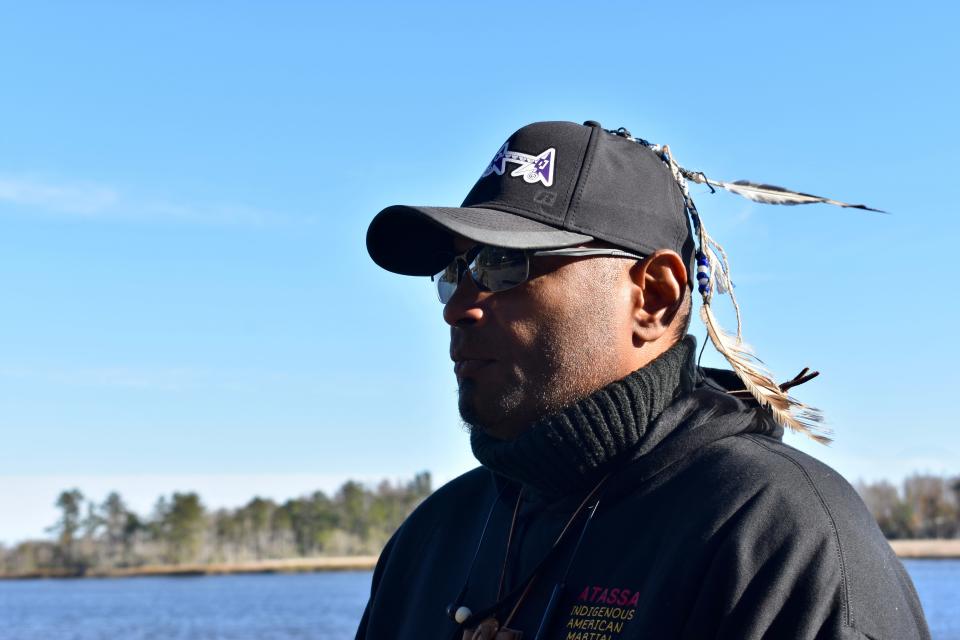
Moore, 54, is the principal chief of the Cape Fear Band of Skarure & Woccon Indians, a Native American tribe with roots in Brunswick, New Hanover, Columbus and Bladen counties.
Around his neck, Moore wears a turtle shell, honoring the indigenous belief that the world was built on the back of a turtle. Beads, string and feathers dress his baseball cap.
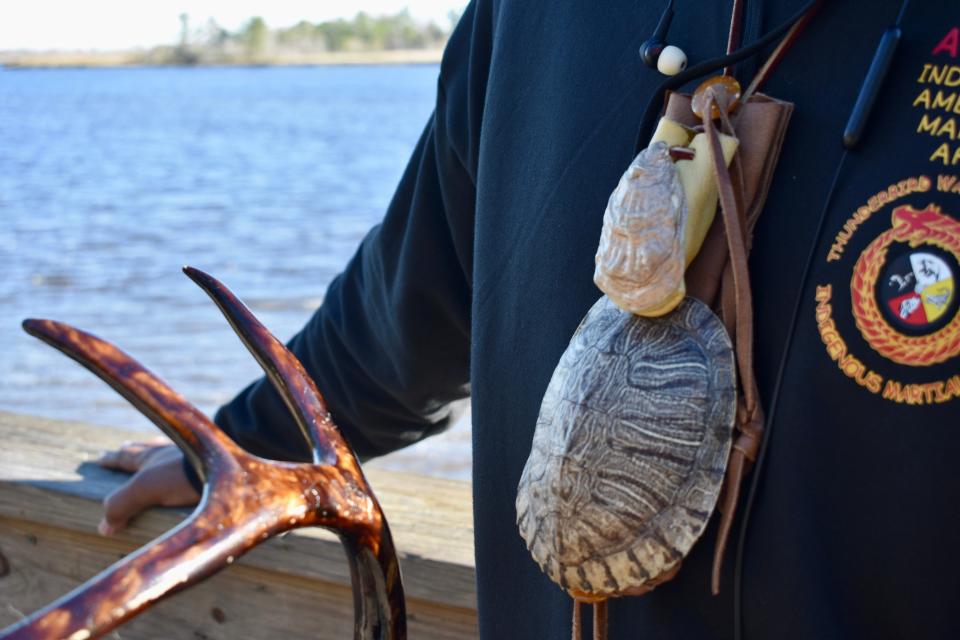
He has spent the last decade of his life dedicated to studying his heritage and the history of the Cape Fear Indians.
Now, Moore is working to restore this community for future generations and educate others on this often-forgotten piece of history.
"No one wants to be invisible," Moore said. “We are still here.”
A deep, long history
The history of Native American Indians in the Cape Fear region dates back to precolonial times.
The Cape Fear Band of Skarure & Woccon Indians, as they are known today, originated from Skarure (or Tuscarora) and Woccon Indians that lived in Brunswick, Bladen, Columbus and Pender counties.
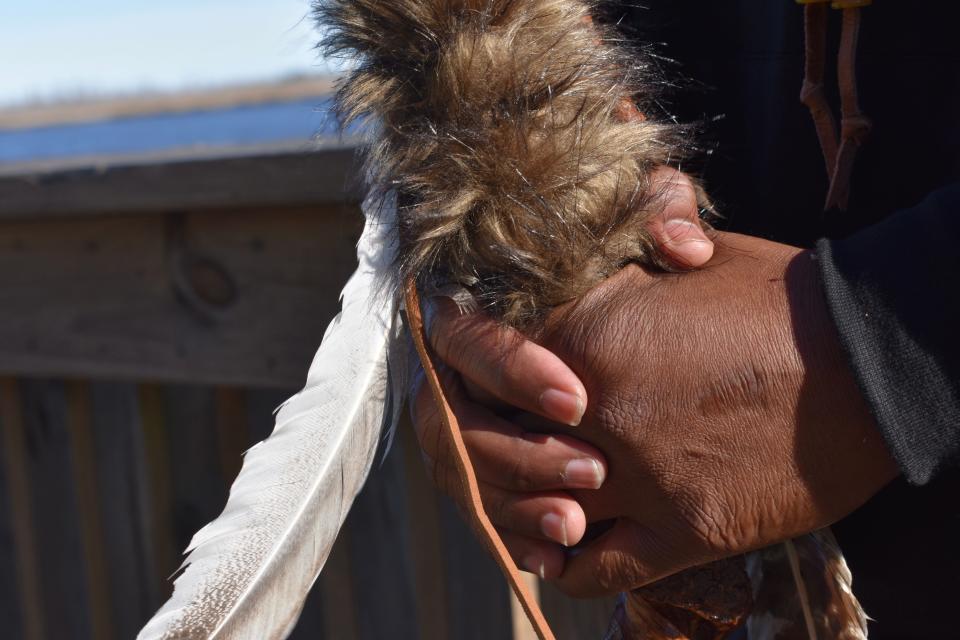
Moore said Italian explorers first documented Native American tribes in the area in 1525. Moore said they were known as hemp gatherers and farmers.
The tribe’s culture places a deep importance on family.
“Our family, that’s first,” Moore said. “We do everything to prepare for the next seven generations.”
The Tuscarora War in 1715 drove a wedge in the tribe, and many tribal members left North Carolina and traveled mostly to New York.
In the 1900s, the tribe saw another exodus when many families who had remained in North Carolina left the eastern counties following jobs.
“Once you are away from the community, you lose a lot,” he said.
Still here
Moore grew up near Lake Waccamaw in Columbus County, an area rich in Native American history. Named after the Waccamaw Indians, the area is home to one of the eight state-recognized Native American tribes in North Carolina, the Waccamaw Siouan Indians.
While Moore grew up close to members of the Waccamaw Siouan tribe, his family made him aware of his own tribe’s history.
“A lot of our family lost their heritage just by moving,” he said. “My dad told me, he said, ‘You know you’re just as much Indian as they are, right?’ And I never questioned him on it.”
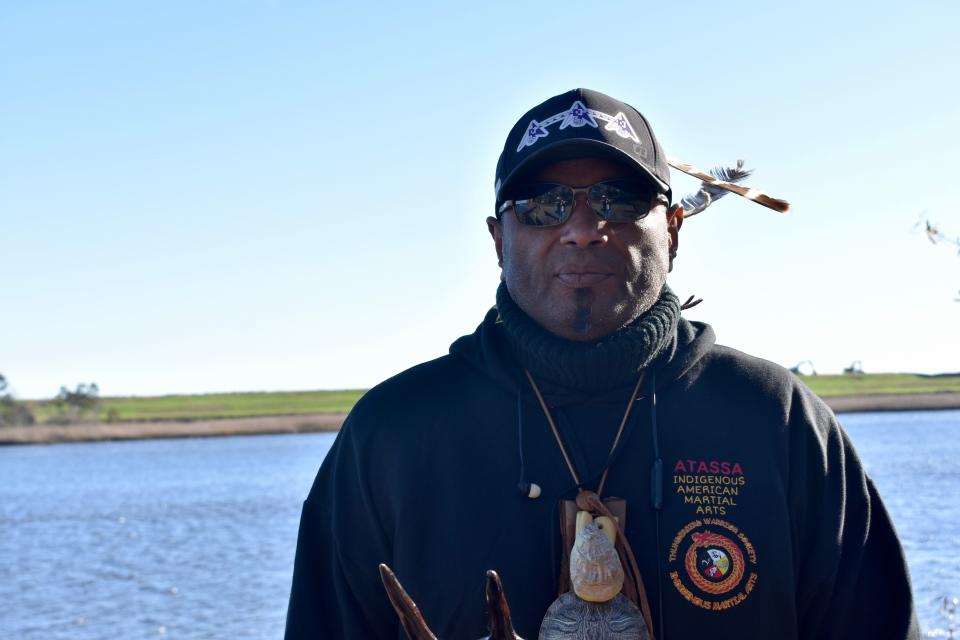
His family’s lived experience and loss of community pushed Moore to rediscover and prioritize the tribe for future generations. He hopes his work will give Skarure and Woccon people a place to work together, thrive and be productive for years to come.
Moore said he wants community members outside the tribe to know about the indigenous history in Brunswick County, as well as the tribe’s continued presence.
Currently, the tribe has around 150 active members, with hundreds more who have traced their ancestry to the Skarure and Woccon people.
“We go to school with you, we shop with you,” Moore said. “We’re still here, right in your face.”
Accepted and embraced
As Moore and other tribe members have worked with local officials in recent years on education and outreach efforts, Moore said they’ve been met with open arms.
“Everyone has really been bending over backwards to make sure that whatever they can do to help us, they do,” he said.
Specifically, Moore said Belville mayor Mike Allen has embraced Moore and supported his efforts to increase awareness about the tribe’s history in Belville.
In 2019, an Eastern Red Cedar tree was planted at Belville Riverwalk Park and is in the care of the tribe. A plaque marks the “Ancestors Tree” and recognizes the tribe.
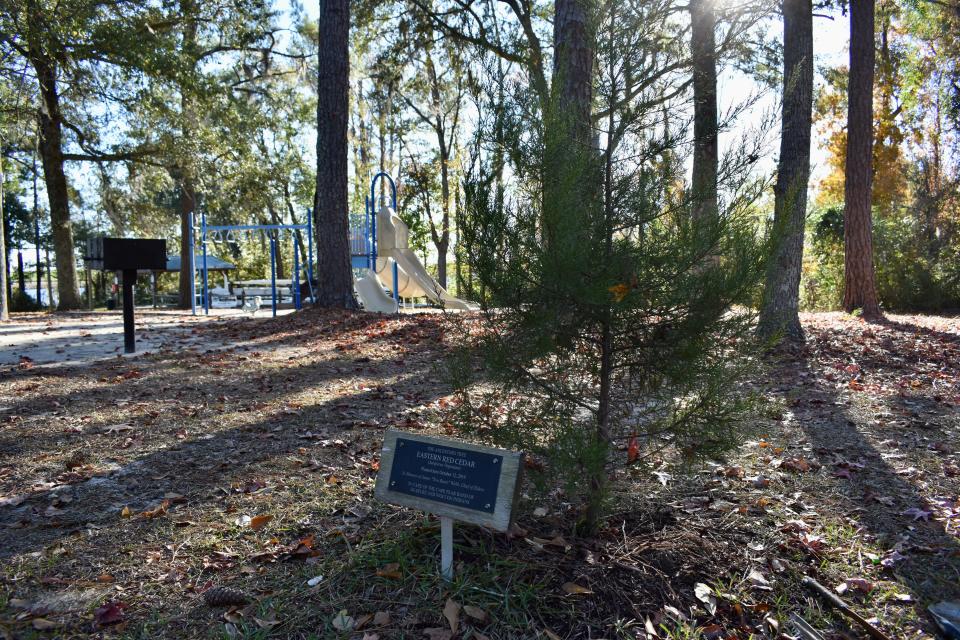
At a recent meeting of the Belville Board of Commissioners, Allen accepted a staff made by Moore after the town recognized Indigenous Peoples’ Day.
“To lose that culture and what it means would be terrible,” Allen said. “I think that one of the greatest things we can do is bring that culture back so that people here and now can see what our past really looks like.”
The staff is on display at Belville Town Hall.
Moore said he never expected this kind of acceptance, and his parents “can’t believe” the support the tribe has received.
“They’re a different generation,” Moore said. “They’re not accustomed to that. Seeing their kids, seeing me, seeing their grandkids actually being accepted where that culture has been rejected, it’s wonderful.”
Jamey Cross covers Brunswick County for the StarNews. Reach her at jbcross@gannett.com or message her on Twitter @jameybcross.
This article originally appeared on Wilmington StarNews: Native Americans in Brunswick County refuse to ‘be invisible’

